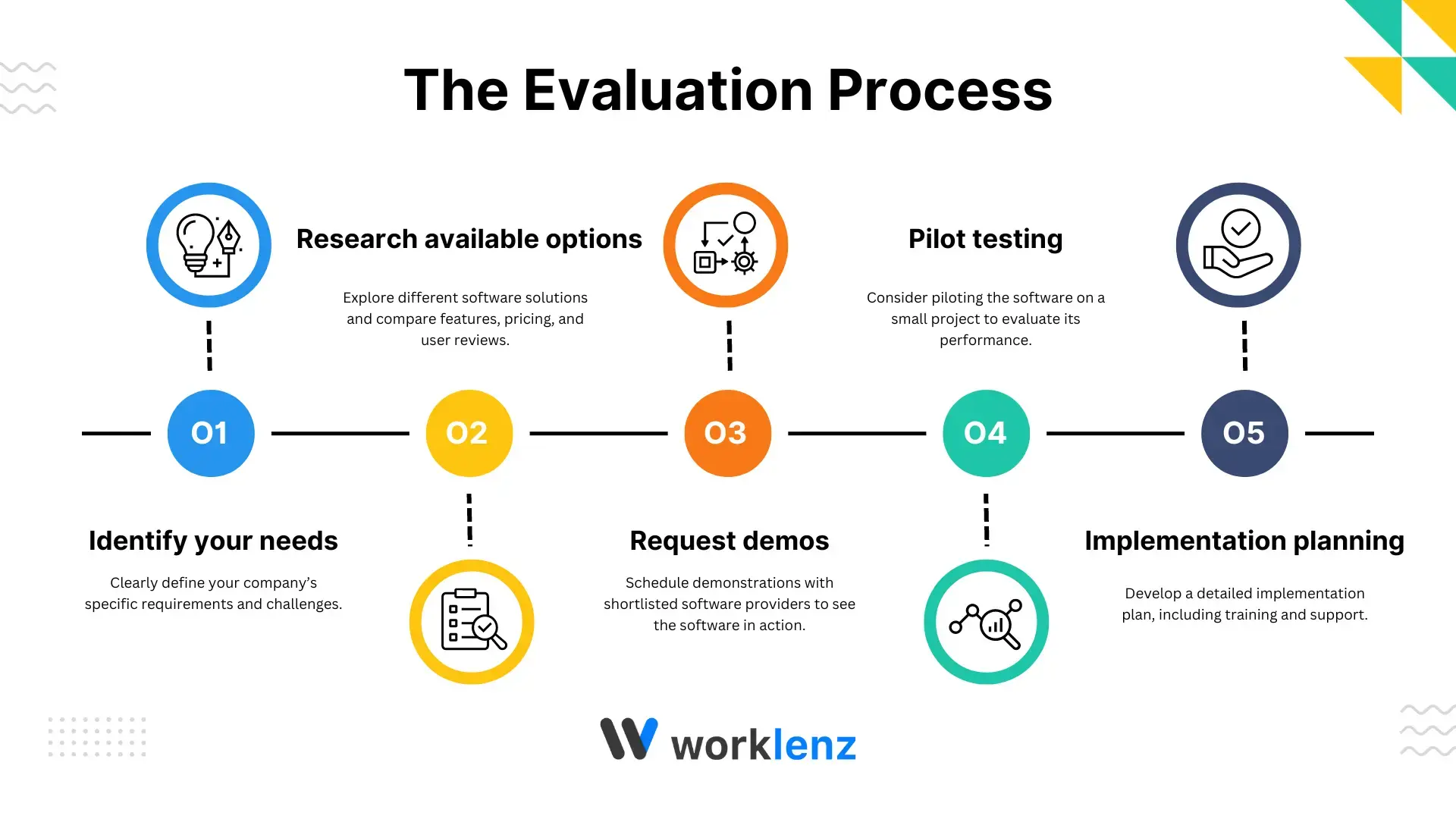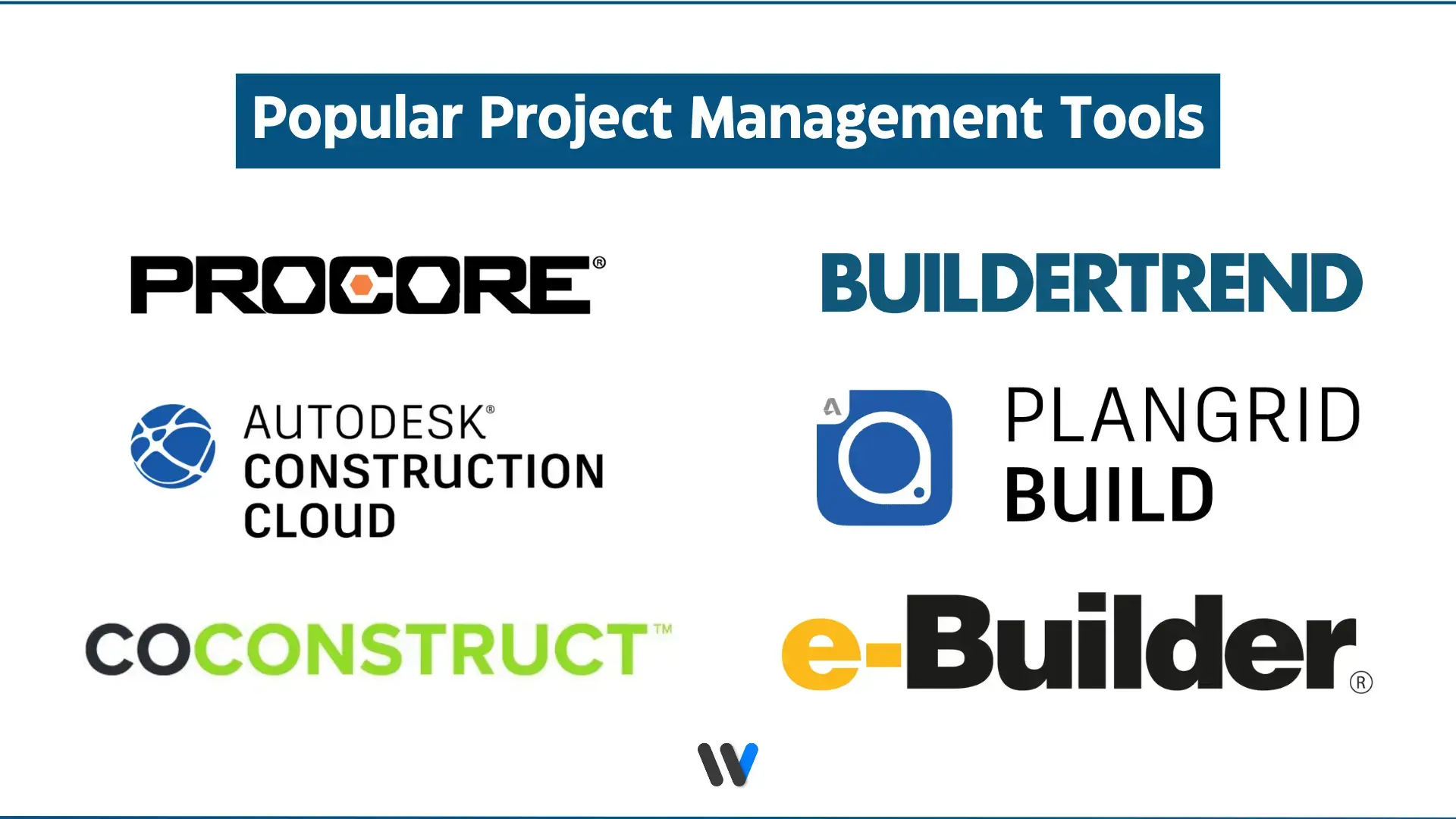How Construction Management Software is Transforming the Industry

The Construction Industry: A Complex Puzzle
Did you know that construction projects are often delayed by an average of 20%?
It’s a real headache for contractors and clients alike. Juggling tight deadlines, soaring costs, and complex blueprints is a challenging feat. The industry relied on stacks of paperwork and manual processes for years to keep things moving.
But times are changing. Construction management software is revolutionizing the way projects are handled, from start to finish. It’s like having a digital superhero that helps keep everything organized, on track, and under budget.
Understanding the Construction Industry’s Pain Points
The construction industry is no stranger to hurdles. From juggling complex blueprints to managing a sprawling workforce, challenges lurk around every corner. Cost overruns, project delays, and quality issues are common culprits that can derail even the most well-planned projects. These headaches not only erode profits but also damage a company’s reputation.
It’s like trying to build a house of cards in a hurricane. One misstep and the whole thing can come crashing down.
Common Challenges in the Construction Industry
The construction industry is a complex web of interconnected elements, each presenting its own set of challenges. Let’s delve into some of the most common hurdles that construction companies face:
1. Project Delays: A Construction Nightmare
Project delays are a persistent thorn in the side of the construction industry. From unforeseen weather conditions to supply chain disruptions, a myriad of factors can contribute to these costly setbacks. Even minor delays can have a ripple effect, impacting subsequent phases of the project and eroding profit margins. Apart from that delays often lead to contractual disputes, strained relationships with clients, and penalties. The domino effect of project delays can be devastating for construction companies.
2. Cost Overruns: A Construction Headache
Cost overruns are a persistent bane for construction companies. From escalating material prices to unexpected changes in project scope, these financial pressures can quickly spiral out of control. Even minor overruns can significantly impact profitability, while major cost blowouts can jeopardize the entire project. Additionally, cost overruns often lead to disputes with clients, strained relationships with subcontractors, and even legal challenges. It’s a financial tightrope that construction companies must navigate with care.
3. Quality Control Issues: A Balancing Act
Maintaining consistent quality throughout a construction project is a complex challenge. From material sourcing to workmanship, ensuring adherence to standards and specifications is crucial. Defects, rework, and safety hazards can arise if quality control is compromised.
Balancing the demands for speed, cost, and quality is a delicate act. Construction companies must implement robust quality control measures while meeting project deadlines and budget constraints.
4. Complex Project Management: Juggling Many Balls
Managing the intricate web of a construction project is akin to juggling multiple balls in the air. With numerous stakeholders, subcontractors, and deadlines to coordinate, project managers often find themselves overwhelmed.
From scheduling and resource allocation to risk management and change order management, the complexities can be daunting. Effective project management is essential for ensuring projects are delivered on time, within budget, and to the required quality standards.
5.Risk Management: A Calculated Gamble
The construction industry is inherently risky. From economic downturns to natural disasters, unforeseen challenges can derail even the best-laid plans. Effective risk management is crucial for protecting project timelines, budgets, and reputations. Identifying, assessing, and mitigating risks requires careful planning and execution. Construction companies must develop strategies to minimize the impact of potential threats while maximizing opportunities.
The Role of Construction Management Software
Construction management software has emerged as a powerful tool to address the complexities of the construction industry. Designed to streamline operations, enhance collaboration, and improve project outcomes, this technology offers a range of capabilities to support construction professionals.
At its core, construction management software provides a centralized platform for managing all aspects of a project. From planning and scheduling to cost control and document management, these software solutions offer a comprehensive suite of tools to optimize workflows and increase efficiency.
1.Improving Project Visibility with Construction Management Software
One of the most significant benefits of construction management software is improved project visibility. By providing real-time access to project data, these tools empower stakeholders to make informed decisions and monitor progress effectively.
With enhanced visibility, construction companies can proactively address challenges, allocate resources efficiently, and minimize risks.
-
Real-time dashboards: Offer a comprehensive overview of project status, including key performance indicators (KPIs) such as budget, schedule, and quality metrics.
-
Document management : Centralized storage and easy access to project documents ensure everyone is working with the latest information.
-
Progress tracking : Visualize project milestones and progress, identifying potential issues early on.
2.Enhanced Collaboration and Communication
Construction projects involve a multitude of stakeholders, including owners, architects, engineers, contractors, subcontractors, and suppliers. Effective communication and collaboration are essential for project success.
Construction management software facilitates seamless communication and collaboration through:
-
Real-time messaging and chat: Enables quick and efficient communication between team members.
-
Document sharing : Provides a central repository for project documents, ensuring everyone has access to the latest information.
-
Task assignment and tracking : Visualize project milestones and progress, identifying potential issues early on.
-
Issue management : Allows for efficient tracking and resolution of project issues.
By fostering open communication and collaboration, construction management software helps to prevent misunderstandings, reduce errors, and improve overall project efficiency.
3.Improved Cost Management
Construction projects often face budgetary constraints. Effective cost management is crucial for ensuring profitability and project success. Construction management software plays a vital role in this area by:
-
Budget tracking: Monitoring expenses against the project budget.
-
Cost estimation : Providing tools for accurate cost estimates.
-
Change order management : Tracking and managing the financial impact of project changes.
-
Invoicing and payment : Streamlining the invoicing process and managing cash flow.
By providing real-time financial insights, construction management software empowers project teams to make data-driven decisions and avoid costly overruns.
4.Improved Resource Management
Efficiently managing resources is crucial for the success of any construction project. Construction management software offers tools to optimize resource allocation and utilization.
-
Equipment tracking: Monitoring the location and availability of equipment.
-
Labor management : Tracking employee hours, productivity, and certifications.
-
Material management : Managing inventory levels and procurement processes.
By optimizing resource allocation, construction companies can reduce costs, improve productivity, and prevent delays caused by resource shortages.
5.Improved Document Management
Effective document management is a cornerstone of successful construction projects. Construction management software offers a centralized repository for all project-related documents, ensuring easy access and version control.
-
Centralized document storage: Eliminates the need for paper-based systems and reduces the risk of lost or misplaced documents.
-
Version control : Tracks changes to documents, preventing confusion and errors.
-
Document sharing : Facilitates collaboration by allowing multiple users to access and share documents.
-
Automated workflows :Streamlines document approval and distribution processes.
By digitizing and organizing project documents, construction companies can improve efficiency, reduce errors, and enhance collaboration.
Key Benefits of Construction Management Software
Construction management software offers a multitude of benefits that can significantly impact the success of a construction project. Let’s summarize the key advantages:
Enhanced Project Efficiency
- Streamlined workflows and automated tasks.
- Improved resource allocation and utilization.
- Reduced paperwork and manual processes.
- Faster decision-making through real-time data.
Improved Project Visibility
- Real-time project tracking and monitoring.
- Enhanced collaboration and communication.
- Better risk management and issue resolution.
- Improved decision-making through data-driven insights.
Cost Savings
- Accurate cost estimating and budgeting.
- Efficient resource allocation and utilization.
- Reduced rework and waste.
- Improved financial management and cash flow.
Improved Quality Control
- Enhanced document management and version control.
- Efficient inspection and issue tracking.
- Improved compliance with industry standards.
Increased Profitability
- Optimized resource utilization.
- Reduced project delays and cost overruns.
- Improved project performance and client satisfaction.
By leveraging construction management software, construction companies can achieve greater efficiency, improve project outcomes, and enhance overall profitability.
Selecting the Right Construction Management Software
Key Factors to Consider
-
Company size and project scale: The software should align with the company’s size and the complexity of its projects.
-
Budget: Determine the available budget for software purchase, implementation, and ongoing costs.
-
Features and functionalities: Identify the specific features that are essential for the company’s needs, such as project management, scheduling, cost control, document management, and collaboration.
-
Integration capabilities: Evaluate the software’s ability to integrate with other systems used by the company, such as accounting software or equipment management systems.
-
User-friendliness: The software should be intuitive and easy to use for all levels of users.
-
Mobile accessibility: Consider the importance of accessing project information and performing tasks on mobile devices.
-
Customer support: Evaluate the level of customer support provided by the software vendor.
-
Scalability: Ensure the software can accommodate future growth and changes in business needs.
The Evaluation Process
To select the right software, consider the following steps:

-
Identify your needs: Clearly define your company’s specific requirements and challenges.
-
Research available options: Explore different software solutions and compare features, pricing, and user reviews.
-
Request demos: Schedule demonstrations with shortlisted software providers to see the software in action.
-
Pilot testing: Consider piloting the software on a small project to evaluate its performance.
-
Implementation planning: Develop a detailed implementation plan, including training and support.
By carefully considering these factors and following a structured evaluation process, construction companies can select the construction management software that best suits their needs and drives business success.
Popular Construction Management Software
The construction software market is vast, with several options available to suit different business needs. Here are some well-known platforms to consider:

1. Procore
Known for its comprehensive suite of tools and a strong focus on the construction industry.
2. Autodesk Construction Cloud
Offers a range of solutions, including BIM, project management, and field collaboration.
3. PlanGrid
Specializes in field collaboration and document management.
4. Buildertrend
Popular for residential construction and homebuilding.
5. CoConstruct
Designed for home builders and remodelers.
6. e-Builder
Focuses on large-scale construction projects and enterprise-level solutions.
Disclaimer: This list is not exhaustive and does not constitute an endorsement of any particular software. It’s essential to conduct thorough research and compare multiple options before making a decision.
Building a Smarter Future
The construction industry is undergoing a digital revolution, and embracing advanced project management software is no longer optional—it’s essential. By leveraging these tools, construction teams can improve efficiency, minimize delays, and enhance collaboration, all while reducing costs. Whether you’re managing a small renovation or a large-scale infrastructure project, the right software can be the difference between success and setbacks.
Ready to take the leap toward smarter project management?
Discover how Worklenz can streamline your construction projects, boost team productivity, and ensure every task is completed on time and within budget. Try Worklenz today and see why it’s the ultimate choice for modern construction teams.